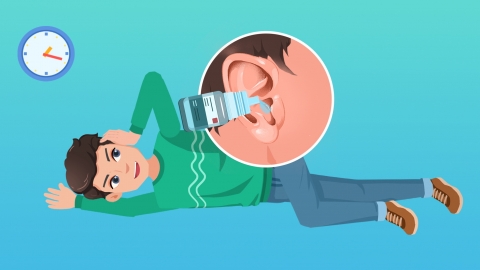What are the methods to eliminate tinnitus?
Generally, the main causes of tinnitus include prolonged exposure to noise, excessive mental stress, secretory otitis media, Ménière's disease, and acoustic neuroma. Appropriate interventions can be selected based on the specific cause. Detailed analysis is as follows:
1. Prolonged Noise Exposure
Long-term exposure to noisy environments leads to continuous sound wave stimulation of cochlear hair cells, causing damage to these cells and resulting in tinnitus. It is recommended to avoid noisy environments, wear soundproof earplugs when occupational noise exposure is unavoidable, reduce daily headphone use, and avoid excessively high volume levels.

2. Excessive Mental Stress
Chronic mental tension and anxiety can disrupt nervous system regulation, leading to abnormal excitation of auditory nerves and causing tinnitus. Maintaining a regular sleep schedule, avoiding late nights, and relieving stress through exercise or meditation can help stabilize emotions.
3. Secretory Otitis Media
Dysfunction of the Eustachian tube leads to fluid accumulation in the middle ear, which compresses the eardrum and ossicles, impairing sound conduction and causing tinnitus, often accompanied by hearing loss. Under medical guidance, medications such as cefaclor capsules, eucalyptus citriodora pinene soft gelatin capsules, and prednisone tablets may be prescribed. Eustachian tuboplasty may also be used to improve middle ear pressure.
4. Ménière's Disease
Endolymphatic hydrops in the inner ear disrupts auditory signal transmission, causing tinnitus, often accompanied by vertigo and fluctuating hearing loss. Under medical supervision, medications such as betahistine mesylate tablets, hydrochlorothiazide tablets, and difenidol tablets may be used. In severe cases, surgery such as endolymphatic sac decompression may be required to reduce fluid buildup.
5. Acoustic Neuroma
Abnormal growth of the auditory nerve forms a tumor that compresses the nerve, interfering with neural signal transmission and causing tinnitus. As the condition progresses, hearing loss may develop. Medical evaluation and surgical intervention are necessary. The standard treatment is acoustic neuroma resection, followed by regular postoperative monitoring of hearing and neurological function.
In daily life, it is important to avoid prolonged exposure to noisy environments, maintain a healthy mental state, undergo regular hearing check-ups, and seek timely medical attention if tinnitus worsens or is accompanied by other symptoms to determine the underlying cause.




